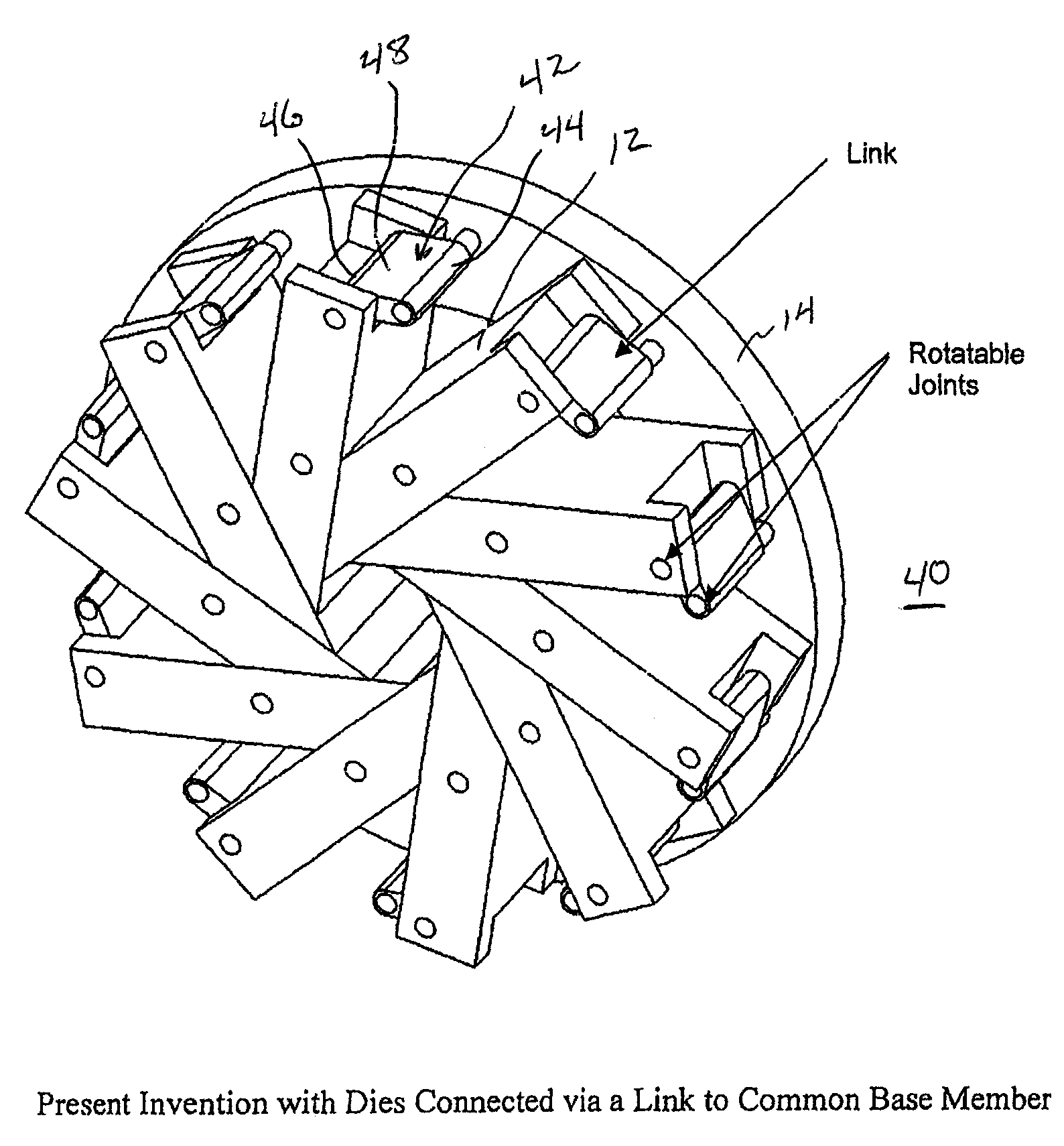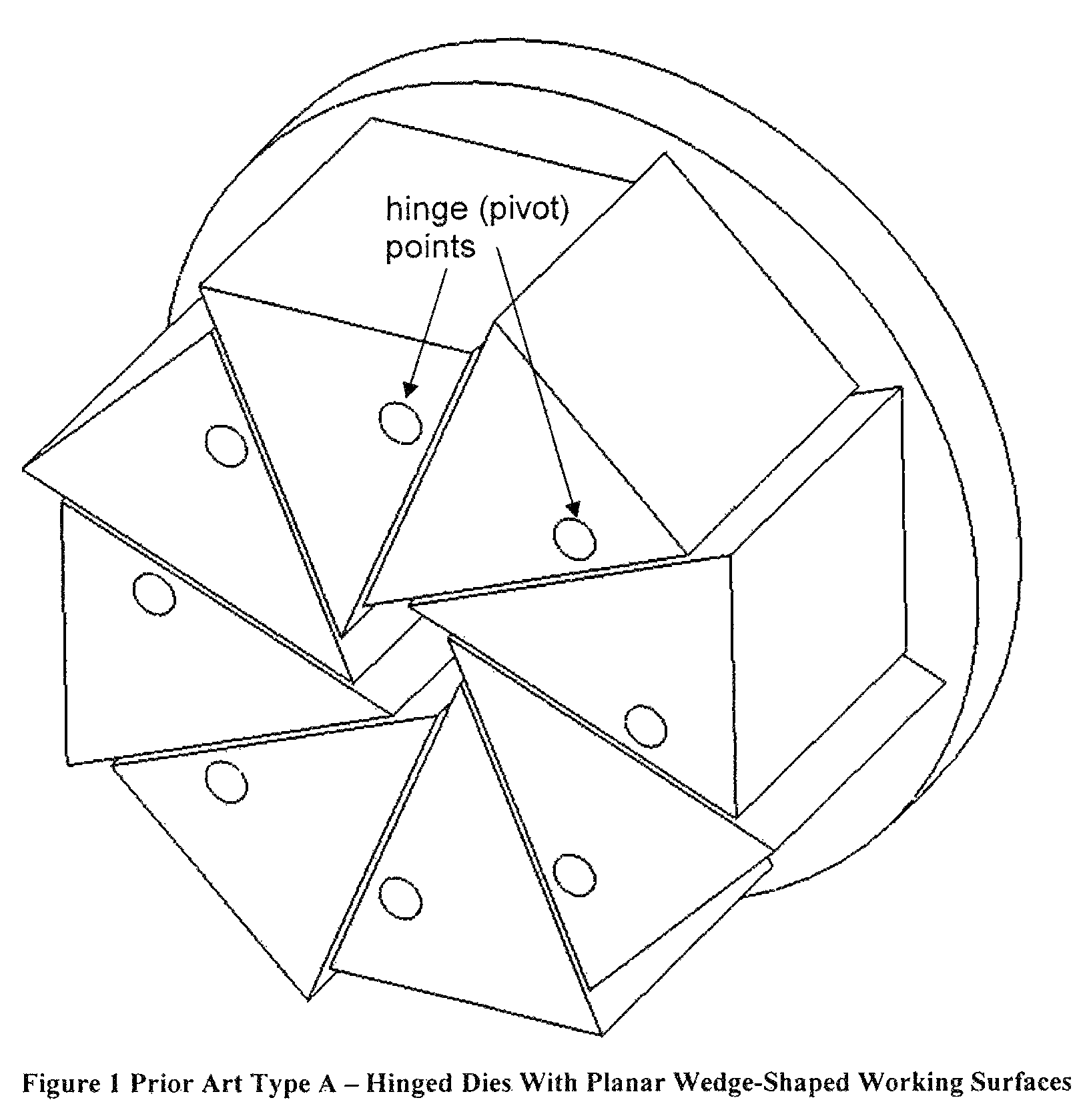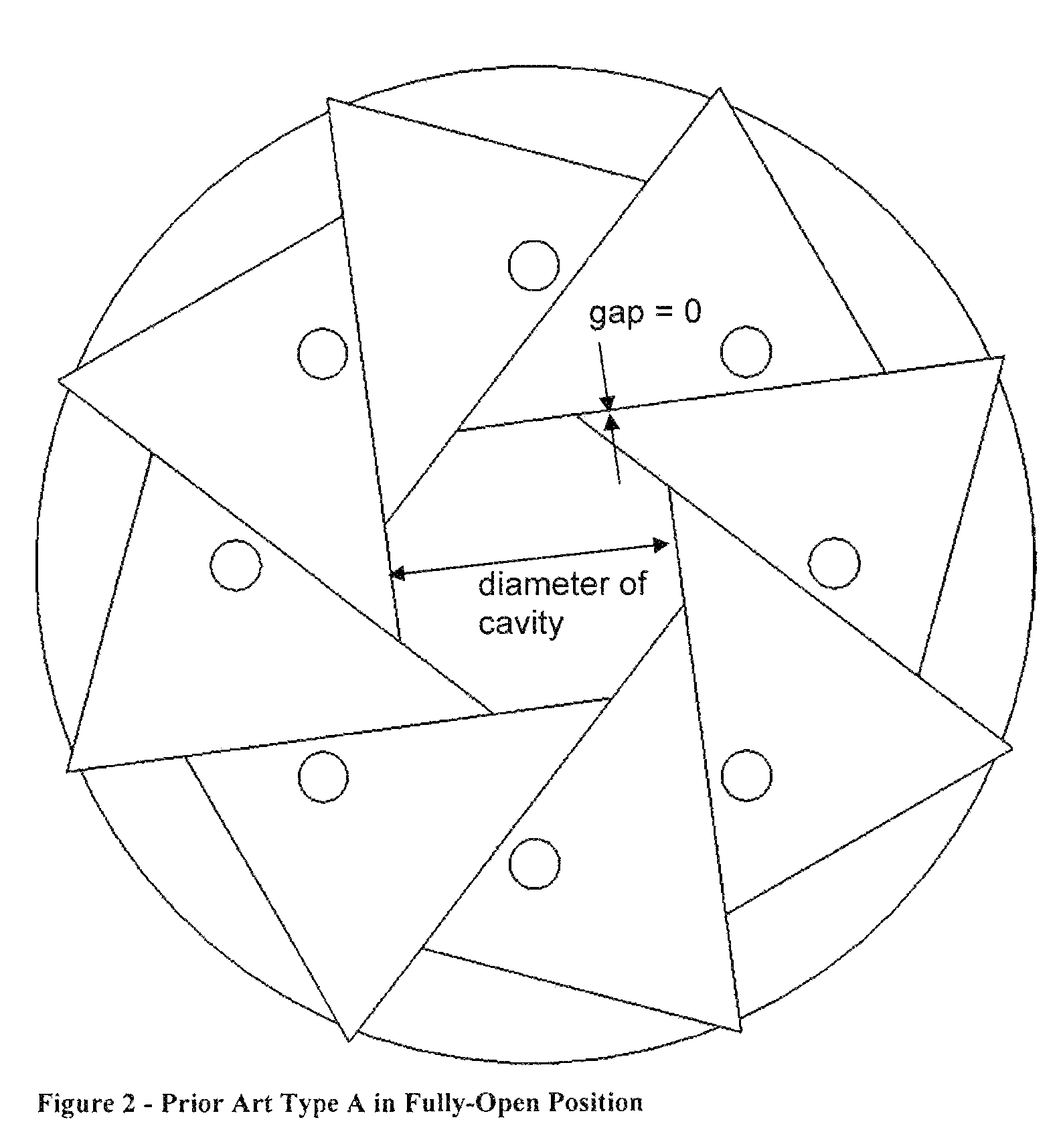Radial compression mechanism
a compression mechanism and radial technology, applied in the direction of forging/pressing/hammering apparatus, prosthesis, manufacturing tools, etc., can solve the problems of large gap between the wedges, metal struts of the stent can move into the gap and be damaged, and typically does not provide a sufficiently accurate positional relationship of the wedge-shaped working end, so as to achieve a large usable size range
- Summary
- Abstract
- Description
- Claims
- Application Information
AI Technical Summary
Benefits of technology
Problems solved by technology
Method used
Image
Examples
Embodiment Construction
[0037]Turning now to the drawings, FIGS. 1-4 illustrate an embodiment of the first type of prior art radial compression mechanism that is described in detail above in the Background of the Invention. FIGS. 6-9 illustrate an embodiment of the second type of prior art radial compression mechanism with linear movement of the die, also described in detail above in the Background of the Invention. FIGS. 11-14 illustrate an embodiment of the third type of prior art radial compression mechanism described in detail above in the Background of the Invention. Each of these types of devices operates in a known manner and will not be further discussed herein.
[0038]Turning now to FIGS. 16 through 21, attention is directed to FIG. 16 which illustrates a radial compression mechanism in accordance with the present invention, generally designated 10. Mechanism 10 includes a plurality of compression dies 12 carried by a base member 14. Each die 12 is of a generally identical wedge shape, and is arrang...
PUM
| Property | Measurement | Unit |
|---|---|---|
| Force | aaaaa | aaaaa |
| Diameter | aaaaa | aaaaa |
| Length | aaaaa | aaaaa |
Abstract
Description
Claims
Application Information
 Login to View More
Login to View More - R&D
- Intellectual Property
- Life Sciences
- Materials
- Tech Scout
- Unparalleled Data Quality
- Higher Quality Content
- 60% Fewer Hallucinations
Browse by: Latest US Patents, China's latest patents, Technical Efficacy Thesaurus, Application Domain, Technology Topic, Popular Technical Reports.
© 2025 PatSnap. All rights reserved.Legal|Privacy policy|Modern Slavery Act Transparency Statement|Sitemap|About US| Contact US: help@patsnap.com



